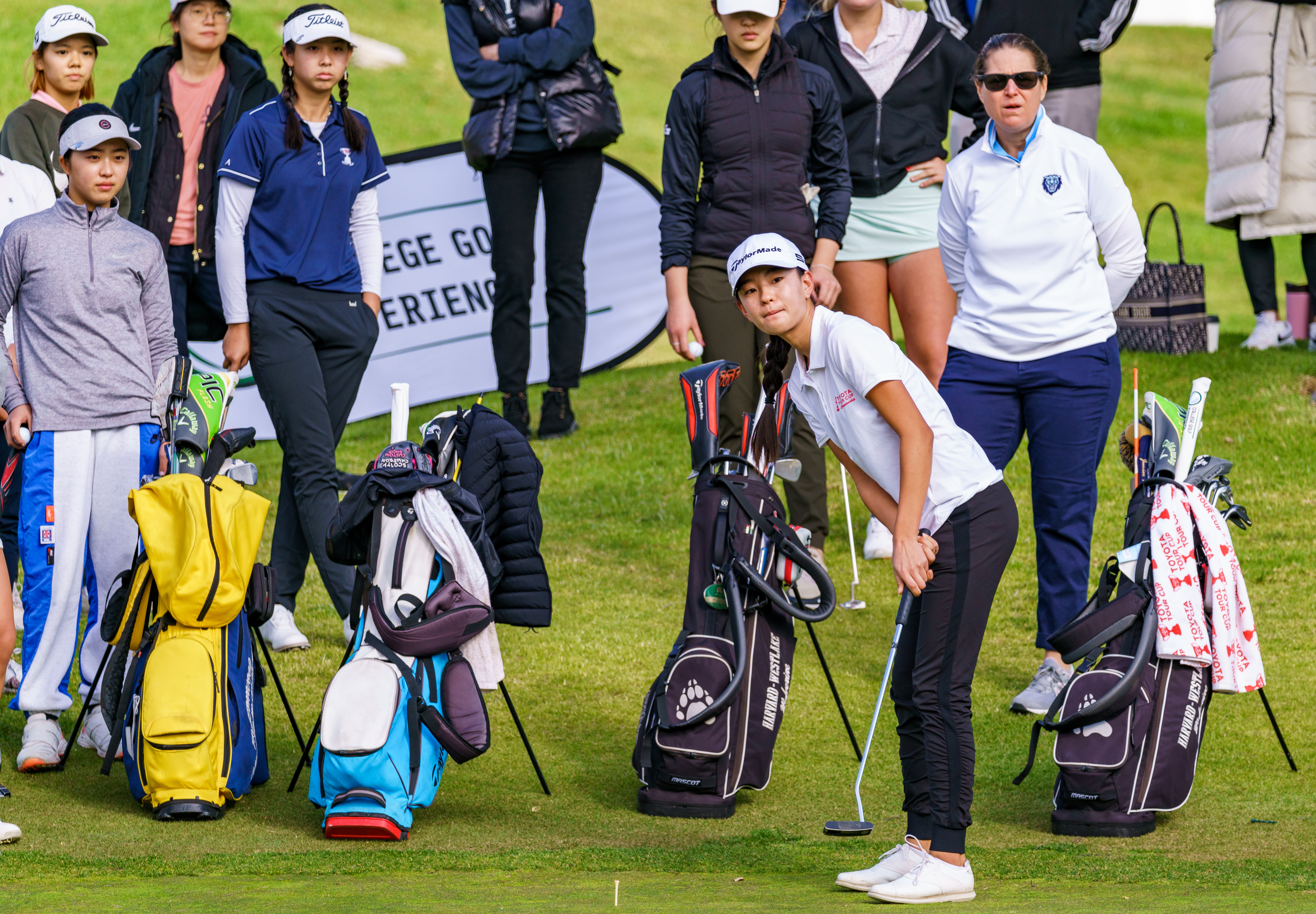College golf coaches are always recruiting.
There’s no offseason when it comes to finding the next batch of players to don their school colors. Whether it’s in between tournaments during the season, amateur events in the summer and more, there are bound to be numerous college coaches scouting the field and pursuing the top junior golfers.
And what junior golfer doesn’t want to go to a school with incredible facilities, dazzling uniforms and top-notch competition every week? That doesn’t make the recruiting process any easier. There are a few camps held throughout the country and College Golf Experience is an example of a growing stage on which college players can showcase their talents.
Changes to the recruiting schedule in 2019 made camps an integral part of the recruiting process, and not just for blue-chip prospects. For golfers looking to play at top-notch programs or Division III schools. College camps are more important now than ever.
That’s why Joshua Jacobs said he created CGX.
It started in June 2021. Jacobs saw an opportunity to change the camp scene, and he wanted to reinvigorate it. He even had the endorsement of the Golf Coaches Association of America.
“Golf is a lot different than a quarterback camp or a running back camp,” Jacobs said. “There really can be these intimate engagements where these coaches can really learn a lot about not only the player and the family they may spend four years with, but also the way they think around the golf course.”

College Golf Experience camps are growing exponentially across the country. (Photo: Brian Walters)
There were three CGX camps in 2021. Last year, there were 28, and about 60 will take place by the end of 2023. Jacobs is expecting that number to be around 125 or more in 2024.
There are annual Top100 camps for elite golfers that include college golf coaches and institutions. There are also geographical showcase camps and preview camps that feature similar personalized instruction.
For any level of college golfer, there’s a camp or camps to assist in the recruiting process and assist players as they prepare for the next chapter in their career.
And CGX is one of numerous companies capitalizing on the importance of hosting camps.
All of the CGX camps come with individualized personalization, too. There’s an 8-to-1 ratio of golfers to coaches, with the Top100 receiving a 6-to-1 ratio. This enhances the experience, making sure each golfer who attends a CGX camp receives personalized instruction.
“As coaches, we use our time at these camps to help the kids become better players and, the better we get to know them as people – beyond just watching shots, swing speeds and short game skills, the more we can help them,” Illinois men’s golf coach Mike Small said.

Oklahoma State men’s golf coach Alan Bratton watches a golfer at a College Golf Experience camp. (Photo: Brian Walters)
Small is one of numerous Division I coaches who have attended one or multiple of CGX’s camps. J.C. Deacon, head coach of the defending men’s national champion Florida Gators, will be at a Top100 camp in Atlanta in November, along with other coaches from current top-10 programs in the Golfweek/Sagarin rankings.
CGX had 42 juniors and seven coaches, including then-assistant Pepperdine coach Blaine Woodruff, at its first camp in California. At the Top100 camp next month in Georgia, Woodruff, now the head coach at Chattanooga, will again be in attendance.
Others who will be there comprise of an all-star lineup of college golf coaches: on the men’s side, East Tennessee State’s Jake Amos, Missouri’s Glen Millican, Notre Dame’s John Handrigan and Wake Forest’s Jerry Haas. For the women, Alabama’s Mic Potter, Arkansas’s Shauna Estes-Taylor, Florida’s Emily Glaser, Florida State’s Amy Bond, Maryland’s Kelly Hovland, Princeton’s Erika DeSanty, South Carolina’s Kalen Anderson, Texas A&M’s Gerrod Chadwell, Virginia’s Ria Scott and Oklahoma State’s Greg Robertson.
And that’s just one of CGX’s camps. Come December, there will be another Top100 camp, this one in Arizona featuring defending national women’s golf champion head coach Kim Lewellen from Wake Forest among numerous others.
“You’re breaking down the barrier between juniors and coaches,” Jacobs said. “Coaches, they’re going to tell it like it is and what college golf is all about, navigating the process, the recruiting process to college golf, and how to find your fit.
“They’re getting simulated practice rounds and tournament rounds with these coaches. They are walking fairways with coaches. They are learning about how to prepare for a golf tournament. They are learning about course management and strategy which is something that every single college coach will tell you is the number one weakness of junior golfers.”
The CGX camps are open to players of all abilities and ages 10-18. Jacobs said most of his camper base are tournament golfers ages 13-17.

Joshua Jacobs is expecting there to be more than 100 camps in 2024. (Photo: Brian Walters)
At these camps, golfers receive instruction and engage with college coaches. They also learn vital information about college golf and the recruiting process from educational seminars.
Jacobs said at one of the seminars, Loyola Marymount coach Jason D’Amore recalls multiple parents in tears because of the advice, instruction and stories their kids were being told.
Thirty-eight percent of CGX campers return for a second, Jacobs said. They crave the experience and how it has helped their personal golf game and prepared them for the future.
“That to me is one of the biggest selling points to players and parents,” Jacobs said.
With the growth of CGX, camp slots fill up quickly, though room remains for camps across the country for the remainder of the year.
“Tournaments are great,” Jacobs said. “They’re going to have rankings and you’re going to find approximately where you belong, but you’re not going to have that connective tissue between coach and player. And that’s what’s going to set us apart”

